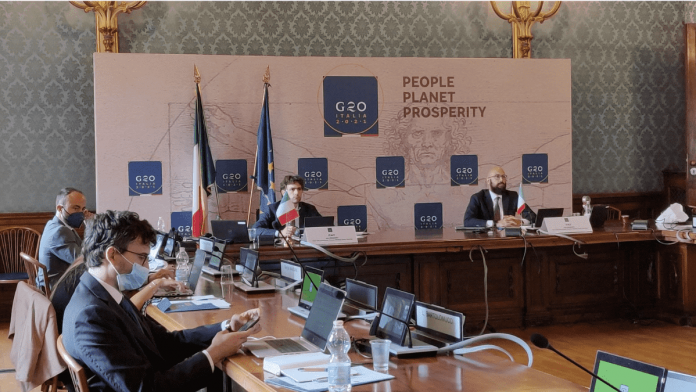Hello Aspirants!
In today’s blog we will be discussing the First G20 Culture Ministers’ Meeting. We will talk about what G20 is, significant facts about the meeting held, nations participating and other related points. Read our blog carefully to know all about G20 and its first Culture Ministers’ Meeting.
Let us first start knowing a little about G20.
The G20
- The G20 is an informal organization comprising 19 countries and the European Union, as well as officials from the World Bank and the International Monetary Fund.
- The G20 is made up of the majority of the world’s greatest economies, both developed and developing.
- It focuses on significant global economic concerns such as international financial stability, climate change mitigation, and sustainable development
- As of 2021 the 20 members of the group include:
Argentina, Australia, Brazil, Canada, China, the European Union, France, Germany, India, Indonesia, Italy, Japan, Mexico, Russia, Saudi Arabia, South Africa, South Korea, Turkey, the United Kingdom, and the United States.
- In addition to that each year G20’s guest also includes: Spain, the Chair of ASEAN, two African countries (the chair of the African Union and a representative of the New Partnership for Africa’s Development (NEPAD), and a country (sometimes more than one) invited by the presidency, usually from its own region.
Venue of the meeting:
On the 29th and 30th of July, the inaugural G20 Culture Ministers’ Meeting took place in Rome. It was a significant two-day event hosted by the Italian G20 chair.
The summit was held in the Colosseum’s arena. It was attended by the culture ministers of 20 of the world’s top economies as well as 40 high-level cultural delegations.
Background:
The meeting included delegations from UNESCO, the OECD, the Council of Europe, the Union for the Mediterranean, ICCROM, ICOM and ICOMOS, the United Nations Office on Drugs and Crime (UNODC), Interpol, and the World Customs Organization (WCO).
The meeting led to the unanimous adoption of the “Rome Declaration of the G20 Culture Ministers. It is a 32-point declaration that recognizes the cultural sector’s economic value and also integrates it into the G20 process. The G20 also agreed to form special measures to protect cultural heritage at risk in crisis zones.
Support for cultural sector personnel, cultural heritage protection against natural calamities and smuggling, the relevance of culture in human capital, and culture as a growth driver were all on the agenda.
5 key areas of interest of the meeting
1. Culture and Creative Sectors- Drivers for Sustainable and Balanced Growth
- Culture and the creative industries should be protected and promoted as engines for long-term, balanced growth.
- The pandemic has had a significant impact on culture, but it can also assist to address the pressures and widening economic, social, and ecological gaps, contributing to the regeneration of our economies and communities, both of which have been severely impacted by Covid-19.
2. Protection of Cultural Heritage
- Natural catastrophes, environmental degradation and climate change, deliberate destruction and looting and illicit trafficking in cultural property are all threats to cultural heritage.
- Identifying potential collaborative and coordinated initiatives to strengthen cultural heritage protection and promotion. In this regard, Italy and UNESCO will continue to collaborate and have established the initiative “Task Force Italy on Unesco’s Invitation.”
3. Addressing Climate Change through Culture
- The culture, including intangible and tangible cultural heritage, creativity, Indigenous people and local communities’ languages, knowledge systems, and traditional crafts and materials should be recognized.
- They have tremendous potential to drive climate action and sustainable development, as well as contribute meaningfully to climate solutions.
4. Capacity building through training and education
- Building capacity through training to meet the complexities of today’s world and cultural sector concerns, such as rapid digitalization, green transition, and demographic change, while also contributing to the achievement of the international Sustainable Development Goals.
5. The digital transition in culture
- The declaration urged security measures to be implemented in order to create a healthy digital ecosystem that protects users from the risks of disinformation, hate speech, and piracy.
- Fostering digital and technical transformation as new growth drivers in the cultural and creative sectors, facilitating universal access and engagement in culture, and promoting cultural diversity.
About G20
Founder – Group of Seven (Canada, France, Germany, Italy, Japan, United Kingdom, United States)
Founded – 26 September 1999
Chairman – Mario Draghi (2021)
With this we come to the end of this blog. We covered all the major points made in the first G20 Culture Ministers’ Meeting. We also talked about G20 for a clear understanding of the topic.
Keep reading on hranker.com for more such blogs.




